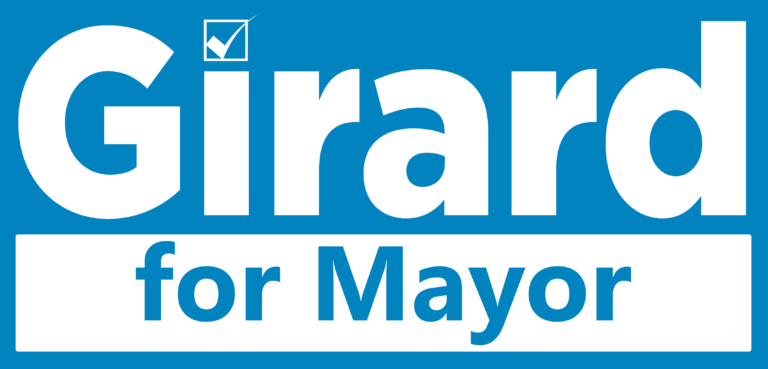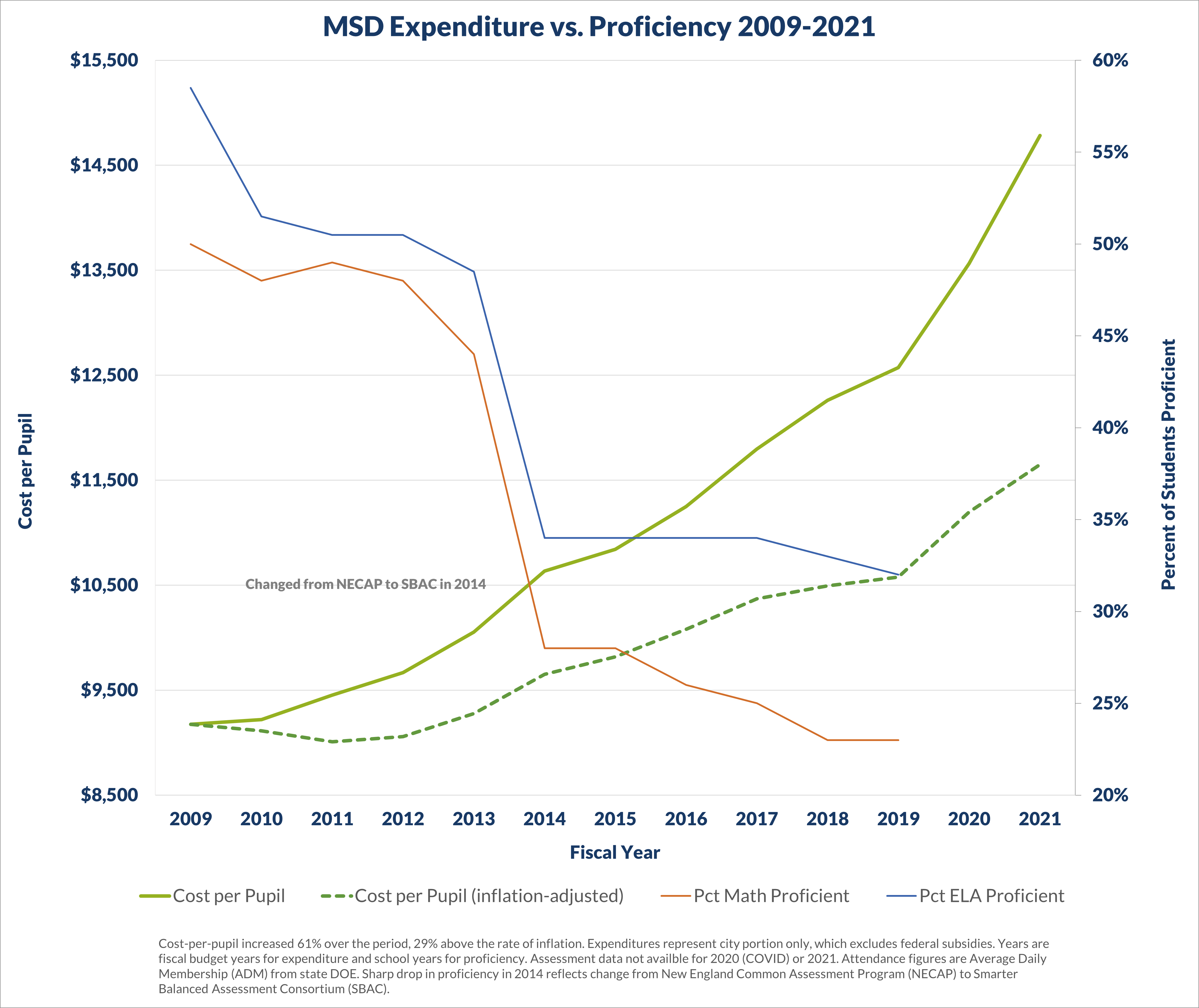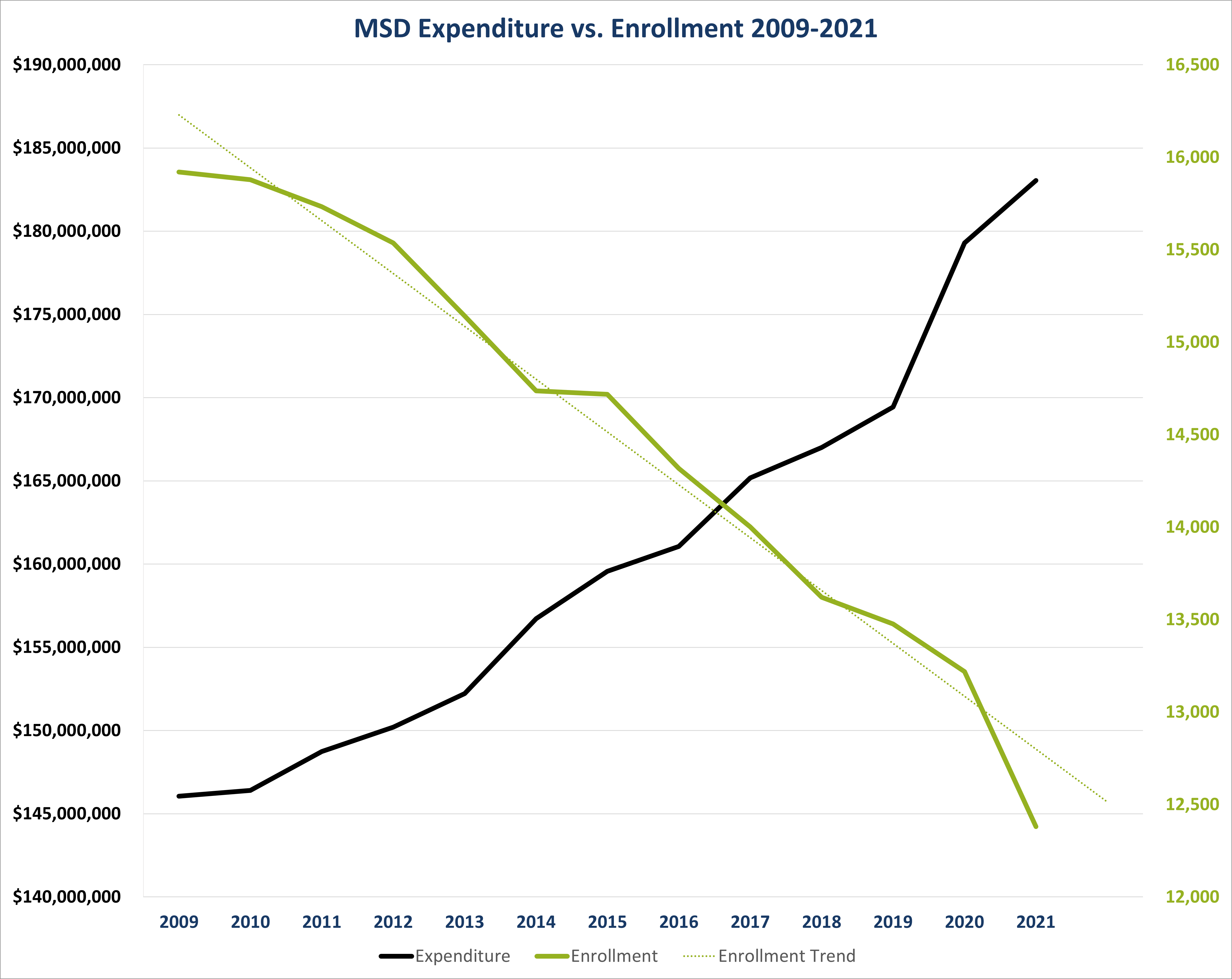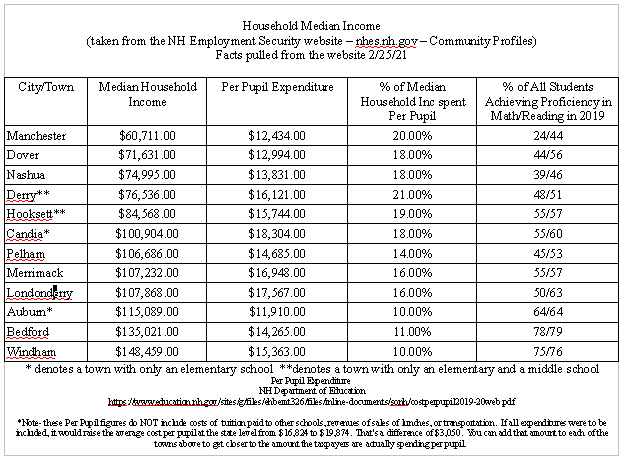Saving Manchester’s Schools by Innovating Through Choice
Whether one is a parent, taxpayer or student, we must accept that schools are vitally important to our city. The quality of our schools affects property values, youth crime, poverty rates, the ability to keep and attract businesses and much more. With this in mind, I have designed this plan to save our schools with methods are proven to work both inside and outside our school district.
Because the city’s future is directly tied to its schools’ performance, Manchester’s mayor, who chairs the school board, must be committed to improving academic excellence and leading the district towards necessary innovations and improvements. Sadly, Mayor Joyce Craig believes the mayor should be removed from the school board. That’s a mistake because the mayor is the one person who can unify the city around a plan to improve our schools. Manchester’s mayor must lead!
Manchester has to come to grips with a grim reality. Student enrollment and test scores have plummeted while total and per pupil spending has soared. Families are either leaving the city or choosing public charter, Catholic, private or home school options. Moreover, Manchester’s taxpayers are paying a higher percentage of their income per student than those in many communities.
Click on the corresponding images at left for larger versions.
MSD Expenditure vs Proficiency 2009-2021
MSD Expenditure vs Enrollment 2009-2021
Proficiency Per Pupil Expenditure
Mayor Craig’s answer has been to spend even more money, complain about a lack of state and federal funding, add to the bureaucracy and advocate for policies that disenfranchise parents as she defends our failing, current system.
Hard Truths:
- Since the 2006-2007 school year, enrollment in elementary schools is down by 21%, middle schools by 11% and high schools by 44%, for a total reduction of 28%! [1]
- The number of Manchester children being homeschooled or educated in public charter, parochial and private schools is nearing 3,000!
For its general failure, there are bright spots and they center around areas where students have options and, therefore, choices. If we are to save our school system and ensure our city thrives well into the future, our schools must provide parents with quality options they want and that our students deserve.
An example of where this is happening is the Manchester School of Technology High School (MSTHS). While students continue to disappear from Central, West and Memorial, MSTHS, the only high school in the city that students may choose to go to, is oversubscribed. Fortunately, nearby Memorial has so many empty classrooms that no students have been turned away from MSTHS. They just use the empty classes at Memorial. (This is something I fought hard to make happen while on the school board.)
On a similar, but smaller scale, the STEAM Ahead and NJROTC magnet programs at West, are open to kids from across the city. Two of my children went from being homeschooled and a third left a public charter school for the STEAM Ahead program (We live in Central’s district) because they wanted to take the classes offered at Manchester Community College through that program.
Did you know: Manchester, except as noted above, requires its high school students to attend school in their attendance district but it allows students from Hooksett to choose any of Manchester’s high schools. Tellingly, less than 10% of Hooksett’s high school students choose a Manchester school over schools in other the communities they also have as options.
The school system is failing because it is not responding to the needs of families<
In an age characterized by “personalized learning,” Manchester is largely focused on “making things the same” at all its schools. That’s what bureaucratic organizations do. They focus on “sameness.” It’s their idea of “being fair.” The unions strive for sameness, too. Their work rules, including start and end times, extra help obligations, open houses, “duty” assignments, the school calendar, etc…are system wide. None of this is conducive to the innovation that’s necessary to meet the needs of our families.
Where the very few exceptions to this “strive for sameness” exist, they largely affect only the kids in specific attendance districts, whether the families like it or not.
The result is that families wanting educational options that are more in line with their children’s needs are choosing alternatives in droves. More than 20% of the school aged children in Manchester are attending non-Manchester schools. With more public charter schools coming, the expansion of online educational options and scholarship programs, Manchester needs an innovative, practical, common sense response or its students will continue to choose from the many and growing number of alternatives that are already being chosen.
THE SOLUTION
Simply put, the solution is to use what we know is already working and expand on it to provide more and better options that meet the needs of our families and students. What’s working is choice. Yet, for choice to work inside the district, there have to be quality options that families want to choose.
Our public school system has to be nimble, focused and capable of providing a wide variety of desirable options to compete for students in the Twenty First Century. To be succinct, it’s not and will never be. It’s not in its nature. Therefore, if our schools are to succeed, we must enable our many talented, innovative and dedicated educators in each school to create the educational options they believe families will choose.
Therefore, I propose eliminating attendance districts and stopping the strive for sameness by creating The Manchester Educational Marketplace (“The MEM”); a public school choice system where “funding follows the child” and our schools and educators have the flexibility and incentives needed to create the options they believe will attract families to their individual schools.
My plan would not only have Manchester parents picking the Manchester public school that best suits their child(ren), it would also free individual schools and educators from the systemic bloat, inflexibility and demand for sameness that blocks them from providing options that our families want and our children deserve.
Why This Will Work And Save our School System
In the first instance, choice is already working, whether it’s the thousands that have chosen alternatives to Manchester’s schools or those that have chosen the few available options within it. That said, this plan is designed to create more options in the district so more families will want to choose a Manchester public school.
To do that, my plan:
- Broadly enables educators to innovate, collaborate and play to their strengths to develop new educational options that better meet the needs of students and families. While the school board would still have to approve any such offerings, it would no longer pick and choose which schools would host whatever program it deems beneficial or necessary.
- Gives parents important choices they now do not have, such as where their children go to school (it could be across the street or across the city) and the educational offerings they get involved with. This will cause schools to be more attentive to parents than they are now because, if they aren’t, the parents may pull their child(ren) and their funding from the school. Parents gain a true stake in the school and that brings participation. This is the way it works in public charter, Catholic and private schools and is why they typically have much better parent participation.
- Dramatically reduces student transiency. In many of our lowest performing schools, students come and go frequently because their parents move and, in doing so, destabilize both the school and their child(ren)’s education. It is a by-product of determining where children go to school based on where they live. In my plan, students don’t need to leave a school when their parents move. That’s better for everybody, especially the kids.
- Gives educators direct say in the school they help design, including the ability to partner directly with businesses, colleges and other community organizations that want to support a specific educational focus or approach, or simply lend their support. They’ll have buy-in and a direct interest in the students attracted to the school and the results they produce. Does it get any better than that for a professional in any field?
- Takes advantage of state legislation (HB 609) that will allow school boards to designate “innovation schools” or “innovation zones.”
- Gives the district’s individual schools a fighting chance to compete with the many small, nimble and capable other schools that have specifically targeted methods, opportunities or programs by creating options for students they believe they can best serve their needs. Gifted and talented, dual immersion, special needs, at-risk, STEM, performing arts, the Humanities, “early college high school,” vocational programs, year round school, etc…the list of possible offerings is endless in a system where we give our educators the ability and incentive to create options they believe families need and want!
An interesting option
Current state law provides multiple ways to innovate and start thinking differently about how we can better educate our children. For example, it allows for local school boards to create charter schools. Existing schools may be converted to charter status by a local school board (the process requires approval of a majority of the district’s teachers and the written approval of both the school’s principal and the superintendent before board approval) or new schools may be formed by:
- A nonprofit organization including, but not limited to, a college, university, museum, service club, or similar entity;
- A group of 2 or more teachers certified by NH; or
- A group of 10 or more parents
However started, these schools would be funded by the district and would remain subject to the Board of School Committee. Note Well: With the state having received a federal grant of more than $40 million that can be used to start new charter schools, the timing is right for The MEM.
GETTING STARTED
There are simply too many variables, such as transportation and special education, to address here in the creation of the Manchester Educational Marketplace. Therefore, between being elected mayor and Inauguration Day, I will assemble a team comprised of parents, experts and stakeholders to design the system and address the many issues and opportunities involved in creating and transitioning to a fully functioning, districtwide, innovative, participatory and exciting new system that’s fully focused on providing personalized educational options for the families of our city.
I believe this will provide the flexibility needed to innovate and create more and better educational opportunities, better academic performance and much better schools because options that hadn’t either been thought of or possible will be created.
I believe this system will cause educators, businesses, colleges, community organizations and parents to partner in direct ways that better align resources to outcomes and provide direct accountability for results.
I believe this will result in more families and businesses choosing our city and public schools over the many competitive alternatives that are currently eating our collective lunch. (Hard Truth: They are!). That means a growing city with increasing school enrollment that attracts more families, more direct private investment in the city and its schools and recaptures the state and federal funding that’s been lost as families have chosen better options. This is how we relieve pressure on Manchester’s taxpayers while improving results.
This is about creating new and better options for families that provide them with the personalized learning options they need and want and that our children deserve. If we do this, I believe we will revive and rescue our public school system and the city will thrive because of it! It will take time, patience, care and determination, but, as mayor, I will be committed to seeing it through. Our kids and our city are worth it!
Believe in Better!
Watch as I present the plan on the May 13, 2021 edition of Girard at Large
You can also follow along with the presentation. [PDF]
—
[1] This reflects the state reported enrollment numbers as of October 1st of each year, inclusive of the 2020-2021 school year. Using 2019-2020 (pre-Covid) enrollments elementary, middle and high school are down 16%, 10% and 43% respectively, for a total enrollment decrease of 23%.



